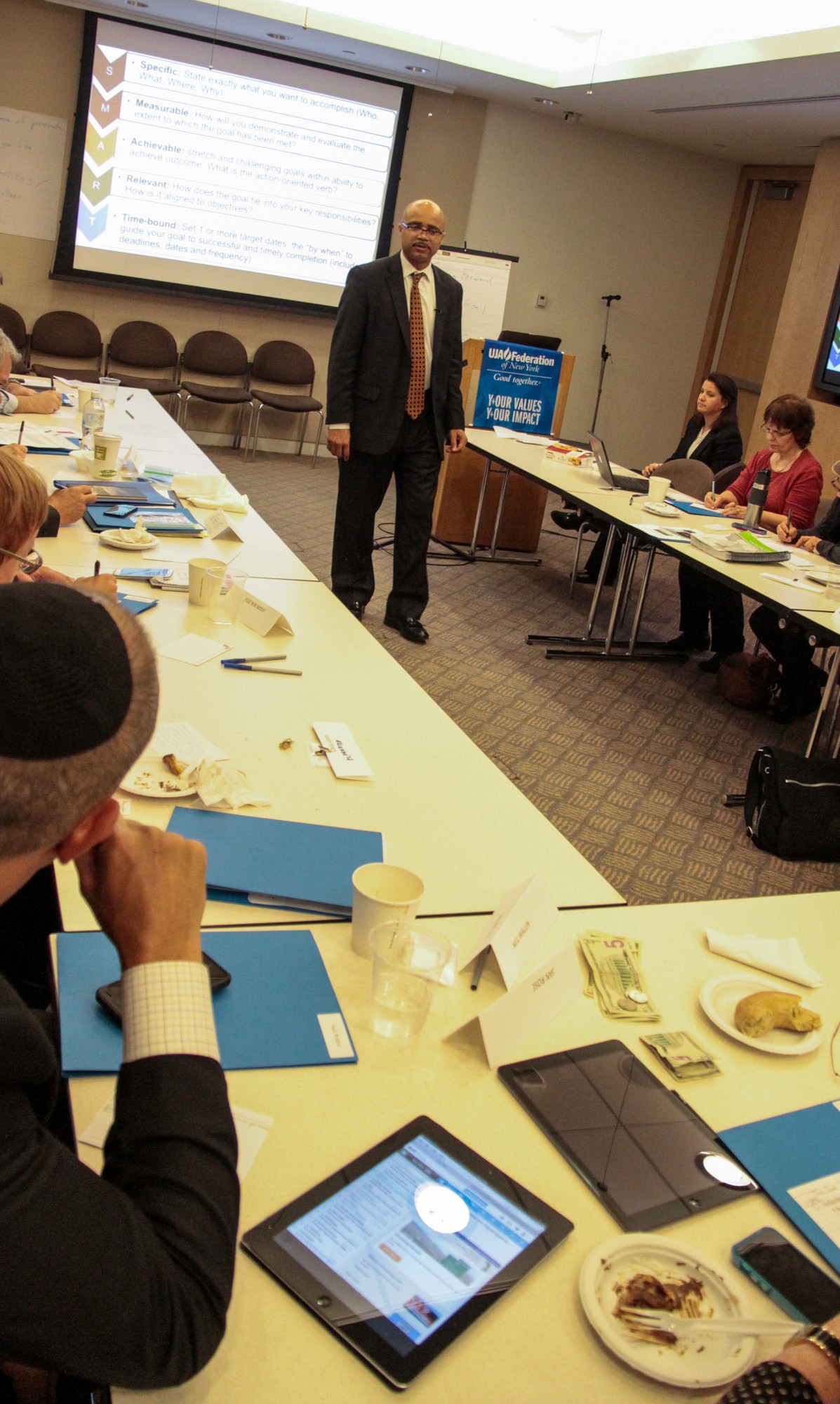Taking the job coaching career plunge
Rabbi creates nonprofit business to help those seeking a new livelihood
A rabbi who was a teacher for several yeshivas, Mordechai Kruger was working as an administrator for Yeshiva Darchei Torah in his home community of Far Rockaway in 2006, when he said he asked himself, “After my fiftieth year, what do I want to do with the rest of my life?”
The Virginia native who had graduated from then Memphis State, now the University of Memphis, in the late 1970s and studied to be a rabbi in Baltimore is a married father of four grown children. Kruger and wife, Tzipporah, married for 34 years, came to the New York area in 1992.
Kruger, 56, still needed a job. He connected with New York City Teaching Fellows, a program that seeks to attract mid-career executives, recent graduates and retirees to the teaching profession. He became a math teacher. But after three years, it was not something he wanted to do. Kruger found a job as an administrator with Connect to Care of the United Jewish Appeal. Firsthand he saw the need to help white collar workers who lost their jobs in the economic downturn that began in 2008.
Aware of the Manhattan-based Hebrew Free Loan Society (HFLS), Kruger learned of the organization providing the Kauffman Foundation’s FastTrac New Venture Entrepreneur course in 2012. The HFLS, founded in 1892, makes interest-free loans to small businesses to help borrowers achieve and maintain economic self-sufficiency. The Kauffman Foundation, founded by Ewing Kauffman in 1966, provides financial and educational resources to also assisting to develop self-sufficient people.
The 12-week course — one class for four hours — focuses on basic business training, business plan components, financials and projecting sales and costs. The course targets people who have lost their jobs due to the current economic funk.
Novick said that very few organizations are targeting the older 40s college educated people, who do to a range of factors such as locked in with families or caring for older parents, cannot pick up and move for employment.
Kruger took the course as Hurricane Sandy struck. “I wanted to create something,” he said, in explaining why he established his Pathways to Parnassa job career training coach business that he is running as a nonprofit. The suggested payment is $100, but any amount or none is OK with Kruger. Parnassa is Hebrew for livelihood. In addition to seeking out clients, he also looks for donors to support the business as he counsels for free. Kruger sees up to 13 clients a week. “They are skilled, talented people and the workplace has changed, and they are at sea, he said.” Kruger credits his wife, a nurse, for being “very supportive” of his developing business.
Applying the knowledge he has accumulated, Kruger meets with clients at the library of Congregation Knesseth Israel, known at the white shul, on Empire Avenue in Far Rockaway. His clients, who are from the Five Towns, Queens and as far away as Detroit (Skype) are either seeking to make a career change or want to start a business.
Though Hebrew is in the society’s name the course is nonsectarian. In the brief time its has been, beginning Dec. 3 will be the fourth class of students, Tiffany Goldberg, director of entrepreneur education for HFLS, said she sees success.
“We do follow ups and we have some getting new jobs, but about half of close to 60 students have started small businesses and half of the remainder are in process of starting businesses,” Goldberg said.






